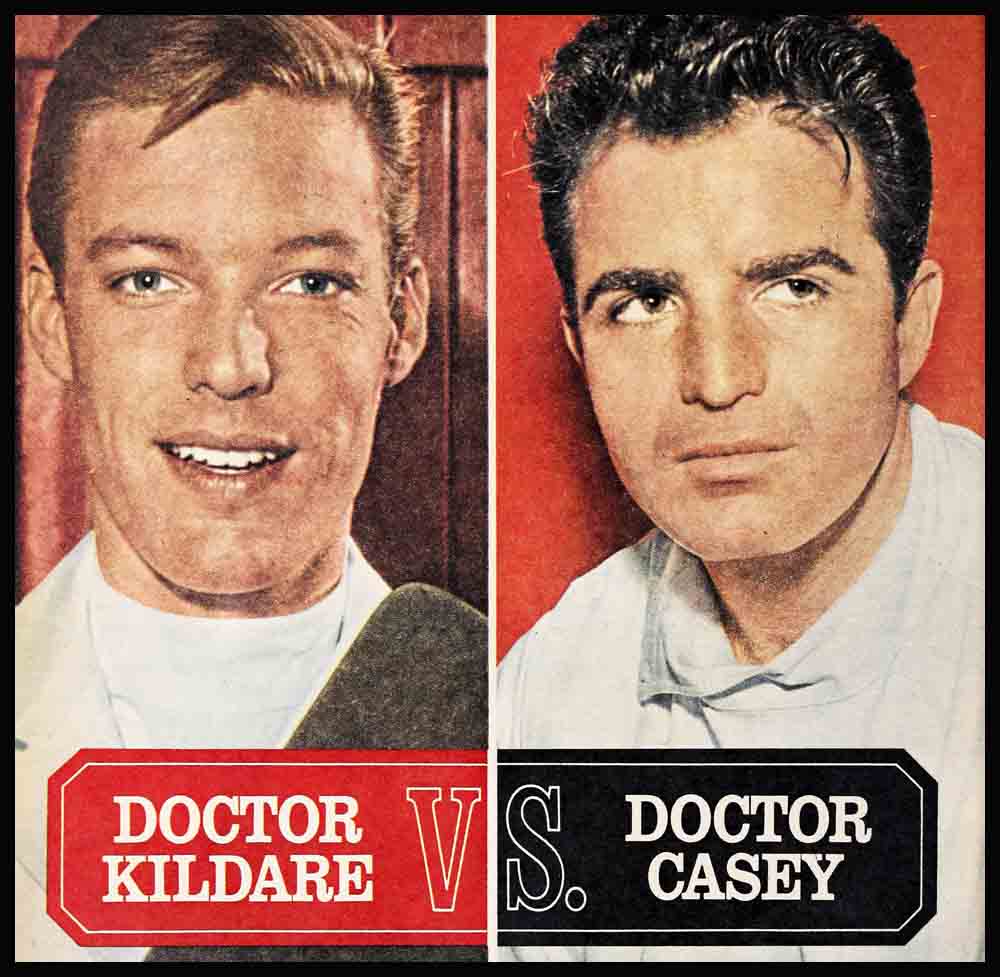
Dr. Kildare (Dick Chamberlain) or Dr. Casey (Vincent Edwards)?
11 Şubat 2022
in Hollywood
Here’s how I’d treat you DR. KILDARE
DICK CHAMBERLAIN: Someone once suggested to me that if I was to be successful with the opposite sex, there was a lesson I had to learn early: Treat a teenage girl as a mature woman and a mature woman as a teenage girl. But knowing how to treat a girl isn’t always that simple.
When I was in college, I became rather serious with a young lady. We dated steadily, but after a little more than two months I began to notice a restlessness about her, a mysterious impatience. It didn’t come out in words, but I couldn’t help sensing it.
And then one night I realized from the discussion we were having that she wanted to know right now whether I was going to ask her to marry me.
As gently as I could, since I really did like her and did not consider her impatience as aggressiveness, I said, “But darling, we have so much time ahead of us, so many things to do for ourselves before we can be ready for each other.”
“You say we have time,” she replied. “You have time. Men do.” Then she shook her head slowly and with a smile steeped in sadness she added, “You will have to learn, Richard, that no woman has that much time.”
I shall always be grateful to that girl. She touched my life deeply. Although I was unhappy at the time to know that I was losing her because I felt I was not ready for marriage, she taught me a truth about women. A truth I have never forgotten.
A woman believes her time for love and the exhilaration of romance is short. The last two years of her teens, perhaps, and most of her twenties. And then the girl is gone forever.
I think it’s unfortunate that so many women feel this way about themselves because here, in the middle of the twentieth century, it seems severely old-fashioned. In Hollywood, for example (although it is true everywhere), I have met women in their mid-forties who are as romantically exciting as a teenager. Science and medicine have made incredible progress in the last twenty years. Many women no longer look or act old at forty.
But the real reason I object to the time-is-so-short theory is that I feel we, as a people, have matured. A twenty-year-old girl falling in love with and marrying a forty-year-old man is no longer a surprise to us, let alone a shock. Perhaps we’re finally learning to respond to one another as we feel, rather than how we think we should feel. It’s been said that it’s unfortunate we cannot treat others for what they are but must instead treat them for what they think they are. This begins to get deep—something for a doctor to handle!
I like portraying Dr. Kildare on television, but it would be a disaster in nonsense for anyone to consider me a doctor. Yet it happens. It’s the most puzzling aspect of becoming Dr. Kildare.
Back in the calm days of my anonymity as a hopeful actor, my introduction to girls brought a pleasant “how do you do,” with a nice smile for each other followed by that frequently awkward period of getting- to-know-you. After that we’d get along fine.
Dr. Kildare changed all that.
That look in her eyes
Now, for some mysterious reason, when I’m introduced to a girl (especially the younger ones) as an actor, as Dr. Kildare, a crazy gleam comes into the girl’s eyes. She often becomes aggressive, over-protective, possessive and even immodest.
The gush overwhelms me, and since it’s started I have reserved the right to flee.
I was told by other actors that it would happen—and further assured that there is no defense against it. It’s an occupational hazard, not always unpleasant, but often embarrassing. And I know of nothing that destroys a man’s composure more than to be embarrassed by a female.
No man, contrary to popular opinion, wants a girl to come up to him with the attitude of “Here I am. Take me. Do whatever you want with me.” There is an old saying that what is easily gotten is easily discarded. Unfortunately, men follow this line of thought with women.
I like to be agreed with, I like to be liked, but I also want a girl to have some sound personal reason for feeling that way.
One girl I dated recently seemed concerned only about how much money I had, what my prospects were and whether my parents and grandparents were “vigorous and healthy.”
Women do gamble on a man. They’re the greatest gamblers because they bet their lives. They have a right to be cautious, but it takes time for a man to understand how he can best treat the women in his life.
Most of my time is spent taking singing and dancing lessons. Aside from that I like to see as much theater as possible. An occasional party or drive is a luxury. But I have been dating. I’ve been going with a girl who has very strong opinions. I don’t agree with some of them, yet there’s a spirit about her that I like. That always makes the disagreements easier to bear!
Right now she’s on a health food kick and believes so strongly that natural foods are essential, she’s convinced “unnatural food is the root of world problems.” She thinks that if people ate what was best for them they’d think straighter and kinder than they do and have more compassion for one another. Maybe she’s right!
Another girl I date wants to become a dancer. But she has a point of view with which I disagree strongly. She told me she wants distance between herself and the audience. What she meant was that she wants to be admired. She wants to avoid the complications of intimacy. She wants exclusive rights to a pedestal.
A loose idea of “respect”
I have to admit that I cannot understand girls who refuse to touch, or be touched by, the minds and hearts of others. It seems unnatural that a woman should reserve what she thinks is best about her for herself. It smacks of a selfishness which I think eliminates any chance a woman might have of being warm. And, unfortunately, many women are afraid to he warm. The one way they want to be treated by a man is with “respect.” But many women have a loose idea of what “respect” is.
It’s not difficult for a man to treat a woman with what is usually called “respect.” To rise when she enters the room, to open a door, to see to her comforts and needs. But these “niceties” are more acts of courtesy than respect.
I know a girl who believes that any man who lights her cigarette is a “real gentleman.” The man who isn’t ready with a light is a bum. This is a dangerous way to judge a man’s character—a man could be termed ungentlemanly if he didn’t happen to have a match! This sounds ridiculous, but unreasonable standards always seem to be what a woman has in mind when she thinks of the ideal man—a man the likes of whom she’ll probably never find on earth. At some time in her life she’ll have to compromise, and the poor guy she marries will probably never know he came out second best to a phantom. “He isn’t what I wanted,” says the woman, “but he’ll have to do.” That’s some problem for a woman to cope with. As Dr. Kildare I treat women with their problems, but they’re usually physical ailments.
In real life, however. as Richard Chamberlain. I treat a woman in a special way because I like her. I would treat you, for example, not for what is wrong with you, but for what I think is right with you.
I consider it right that a girl not only be conscious of the fact that she is a woman, but that I am a man. This may sound terribly obvious, but you know and I know that there are females who rarely consider the difference. They demand a respect they have never earned, have never tried to earn. have never thought of earning.
At the risk of sounding too positive, I’d say that most men would be attracted by any woman who makes it clear that she’s interested in deserving their attention. A sharp makeup job, a dress in high fashion, a sexy figure will catch the eye of a man. But none of these things will keep him. The competition, as you are certainly aware, is overwhelming.
There was a lot of talk about the perfect woman in college. Yet I never met two men whose ideas of perfection in a woman were exactly the same. You’d all be interested to know that during our freshman and sophomore years we dissected you women shamefully, but we had good reasons. What we decided about you was quite complimentary for all the lack of grace we used to find the answers. As a matter of fact, the results were pretty funny.
Like a swarm of Romeos deploring a hundred “inconstant moons” we discovered we were just as inconstant ourselves. We all agreed that cosmetics, fashions and voluptuous bodies were superficial and impermanent attractions. Yet there wasn’t one of us who didn’t, the very next day, swivel his head at the first sexy shape that went by.
Weak? Of course we are.
“Man, you’ve got it made”
During the last few months I’ve had more than one male friend say to me, with a touch of envy in his voice, “Man. Dickie boy, you’ve got it made. You know how women go for doctors.”
They forget I’m not a doctor. I’m an actor. Even before that I’m a male. If I am to be loved by a woman I don’t want her to love me because I’m the image of a doctor, or because I’m an actor or solely because I’m a male.
I need and want the woman who will care for me because I’m Richard Chamberlain, a peculiar blend of a mind and body. I don’t imply that this combination makes me special. Every man is unique. Every woman is unique. That’s what makes living—and loving—so special.
I guess if I were to sum up, briefly, the way I think a woman should be treated, I’d be thinking of three treatments at once. In the beginning I like to consider a girl in the light of what she believes she is. That’s usually easy because every woman knows how to make that clear to a man. That’s what she wants.
Later in our friendship I would consider her for what she really is. That would be what I want since I’m convinced that we all must deal with reality sooner or later, but the sooner the better.
Lastly I would look on her as the woman she hoped to be. A healthy respect for the future and an enthusiastic attitude toward the happiness tomorrow can bring is the most important drive that exists in all of us. That’s what we would want. She’d want it just as much as I would. I don’t think the female of the species is deadlier than the male, just livelier.
My only real regret, shared by other men I’m sure, is that it’s too bad there aren’t enough years in our lives to love you all—one at a time.
—as told to TONY WALL
Be sure to see Dick in “Dr. Kildare” on NBC-TV every Thursday, 8:30 P.M. EST.
Here’s how I’d treat you DR. CASEY
VINCENT EDWARDS: A few years back I wasn’t treating girls, I was saving them. I w as a citizen of that famous New York borough, Brooklyn, and took a job as life guard at Coney Island. My chores were simple: watch out for swimmers in trouble, reunite lost children with their parents (sometimes it was the other way around I and help clean up the beach on Monday mornings.
In the beginning, my chief interest in the working weekend was to accumulate money to pay my way through college. But after two or three Sundays I discovered that I was reaping a number of fringe benefits I hadn’t expected from the job.
I had a reserved seat on the front row of life. Every weekend, humanity shimmies out of the clothes harness for a holiday of happy hysterical “lots of mustard on that hot dog,” wet laughter and mouthsful of salt water. If some are lucky, they may preserve a memory that will last all during the dull days of the next week.
It happens every summer Sunday.
You can’t be a life guard for more than a couple of weeks without saving a few case histories for the future.
As most young men in their late teens, I had a normal interest in girls. But then, as now, I always seemed to be so involved in a job that I never had time to develop many promising acquaintances. But despite that, at Coney Island, I discovered the one aspect of the female personality that seems to be common to all women.
It happened the second or third week I was on duty. She was very pretty, but obviously without a boy friend and feeling very lonely. She walked up to the tower where I sat and with one of her best smiles she asked, “If I go out there in deep water and start to drown, will yon come and rescue me?”
I nodded. “Sure. I’ll pull you out. But when I get you on shore I’ll give you the hardest spanking you’ve had since you came home with a bad report card.”
She pretended she didn’t like that very much and walked away. I forgot about her. Then a few minutes later there came that old familiar cry of “Help! Help!” I had my suspicions as I raced out, and when I got there I saw they were well-founded.
It was my girl friend of short meeting and she was drowning with a smile. I’d been pretty sure it was a false alarm, because people in real trouble rarely have the time to holler for help. They are too busy drowning. They are either too exhausted or choked up with sea water to shout. It’s usually a vigilant life guard who sees a person in distress.
But in this girl’s case, as in all others, I couldn’t take the chance. I brought her back to the beach, and she played it limp and exhausted—until I took her over my knee with every intention of spanking the splash out of her.
My hand was up, ready for the first whack, when I caught her looking back at me from the sand. She had that Mona Lisa smile still on her face. I stopped. “Get up, little girl, you’re all right. And I’m not going to spank you.”
She jumped up, glared at me and walked away with the classic stride of indignation that only a girl can show.
The next week it happened again.
Would I, asked the new girl. rescue her if she yelled in distress?
“No. Ma’m,” I said with a straight face, “I’ll let you drown.”
It was the Standard answer I gave for the next two years to girls who, on Sun-day at least, sought a little excitement for their lives.
Women desire excitement
What did I learn? That it’s normal for a woman to want a little abnormal excitement in her life. I don’t mean to imply that this is a characteristic only of females. Men go to even greater lengths for thrills. But we’re discussing women. and I came to realize early in my life that girls and women like to attract attention. It’s part of their chemistry. As a man I’m all for it . . . in the right proportion . . . and I act accordingly.
I encountered the same thing again in college. The girls were different. but they were the same. It was the technique that changed. not the trait. Now the girls used their wit as an attention-getter. For some mysterious reason some girls have a compulsion to match wits with every man they meet. To this day I don’t know what such girls are trying to prove.
No man really wants to match wits with a woman. He wants to match dreams, hopes and perhaps a little laughter. He wants to match futures. He wants to find all of womanhood in one woman—and he must, because one woman is all he is allowed.
They say that when poverty comes in the door, love goes out the window. But from what I have seen, poverty isn’t the only thing that can chase love over the transom. I’m convinced that any marriage that makes the man the reluctant contestant in a game of wits is not a happy one. And I believe that deep in her heart the wife is even unhappier than her husband. I suspect that most women who challenge the men they know are looking for some sure signs of a dominant spirit in the man. They want to know, positively, that the man whom they admire in their hearts is going to prove himself a true man and make all the decisions for both of them.
I’ve seen this work with a married couple I know. She loves him with all the warmth and tenderness that a woman can know. And the reason, she once confided, was that “he makes every decision . . . and you know, nearly every one he makes is wrong.”
She didn’t care. As long as he was the boss, she loved him. That’s something I keep in mind when I think about how to treat a woman. Of course, my background probably has something to do with it. My parents were European, born in Italy. And the dominance of the male in my house (and in every European family I’ve ever known) was not a meaningless matter. The man was head of the house for good reasons. His authority gave a sense of security to his wife. The children, in their formative years, learned basic obedience and respect for maturity. I didn’t always agree with my parents’ wishes, but I understood at a very early age that my father’s word was law, whether I liked it or not.
Now I’m thirty. I’ve met many many women in my life. As a life guard, as a college student, as an actor in the lean years, as an actor in the good years and now as the image of Dr. Ben Casey. Yet for all the experience and success, I still have to make decisions when I date a girl, just as any man does.
Where shall we go? What shall we do? A party? Movie? Just stay home and talk? A long drive on a nice night? We do whatever we both think is worthwhile, whatever is important to us. Ballet is a favorite entertainment of mine, although the event for the evening could just as well be a prize fight if I enjoy the company of the girl I’m with. Of course, Dr. Ben Casey doesn’t have as much trouble getting a date as Vincent Edwards once did.
As a matter of fact. the way I treat a woman is even more important to me now than it was before. The women I know expect understanding from me. In some cases, unfortunately, my dates decide that they’re out with a doctor instead of an actor. I even got the doctor routine from a man I know at the studio. “Now that you’re a ‘doctor,’ can you tell me how to treat a woman?” he asked.
My own beliefs
Aside from the fact that it was a bad pun, I suspect that the man who asked the question had tried to bury his eagerness for a straight answer in humor. The question started me thinking, however, and I began reflecting on my own beliefs. I think the first thing a man should remember is never to treat a woman casually. Every woman should be given attention, some specific notice. A lot of men forget that the attention women get from men is one of the most important rewards in their lives. I don’t mean wolf whistles or a lot of empty flattery. That’s almost as bad as no attention at all. But for a man to make the simple admission, in his own way, that he is very much aware of her presence is the kindest and most sincere tribute he can pay to a woman. And it can be done by just saying her name in the right tone.
I also believe a man should never fail to show a woman courtesy. Lighting her cigarette, opening doors, taking her arm . . . those are things a man should do automatically. But the courtesy I speak of is . . . well, more of an implication in his attitude than a mere polite act.
The real courtesy is in the way a man speaks, the warmth and honesty of his smile. Women can spot a phony at twenty paces, and no man should ever forget this.
But perhaps the most important thing for a man to remember is the one rule I’ve seen them break most often.
It involves the question that has been argued since Adam and Eve: Who is superior, man or woman?
Personally I think it’s nonsense to even consider such a comparison. I know men who seem to delight in trying to prove that they are physically superior to women, Their motto is “treat ’em rough!” Those men are nursing bruised egos. Somewhere along the line they’ve been put down by a woman and they’ll go on for the rest of their lives seeking revenge. It’s a dull, unhappy quest for a man, and in the end I don’t believe he ever proves anything.
I treat a woman not as a superior, not as inferior, nor even as an equal.
I treat a woman as a woman. She wants nothing more, nothing less.
And I’m convinced that if I do that, she will, in turn, treat me like a man.
—as told to TONY WALL

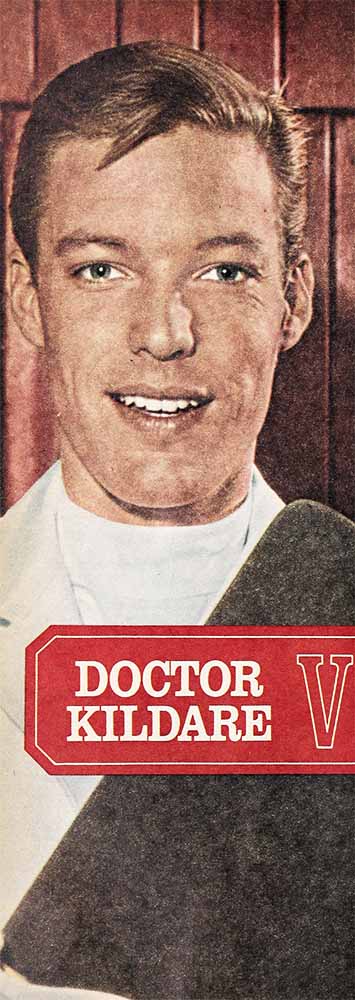
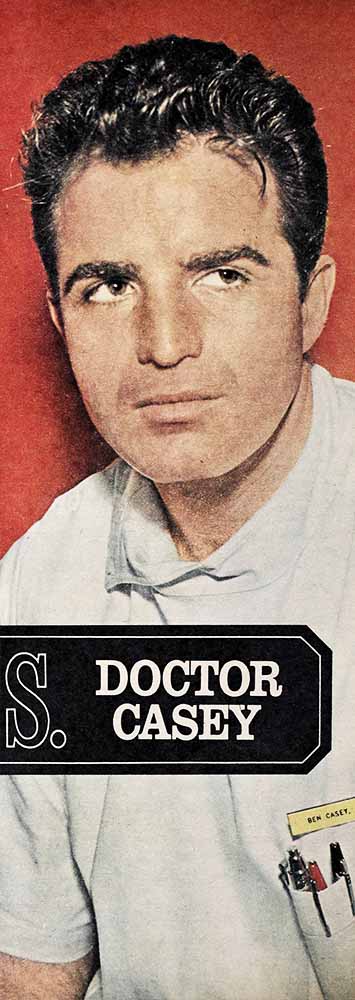

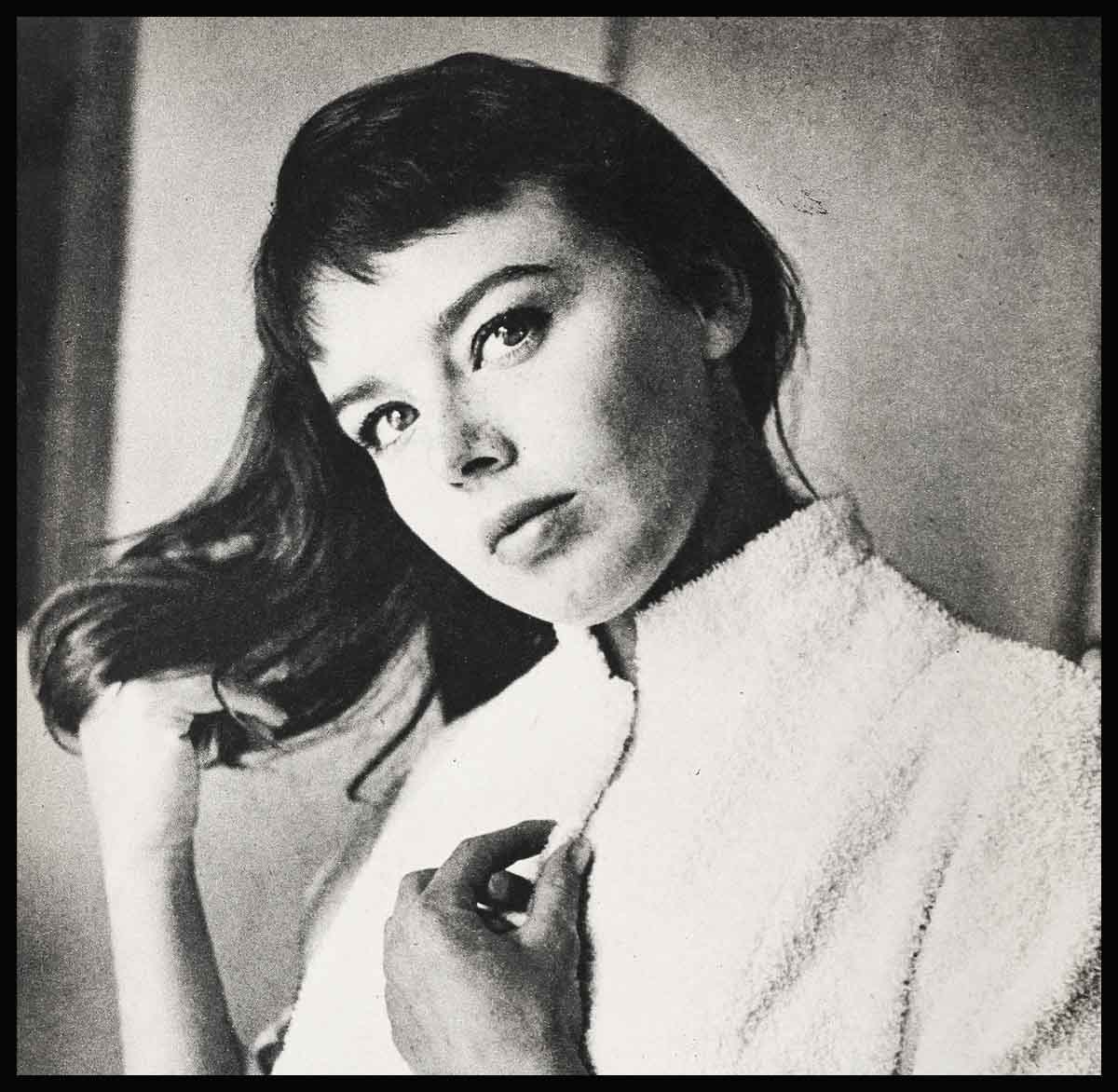
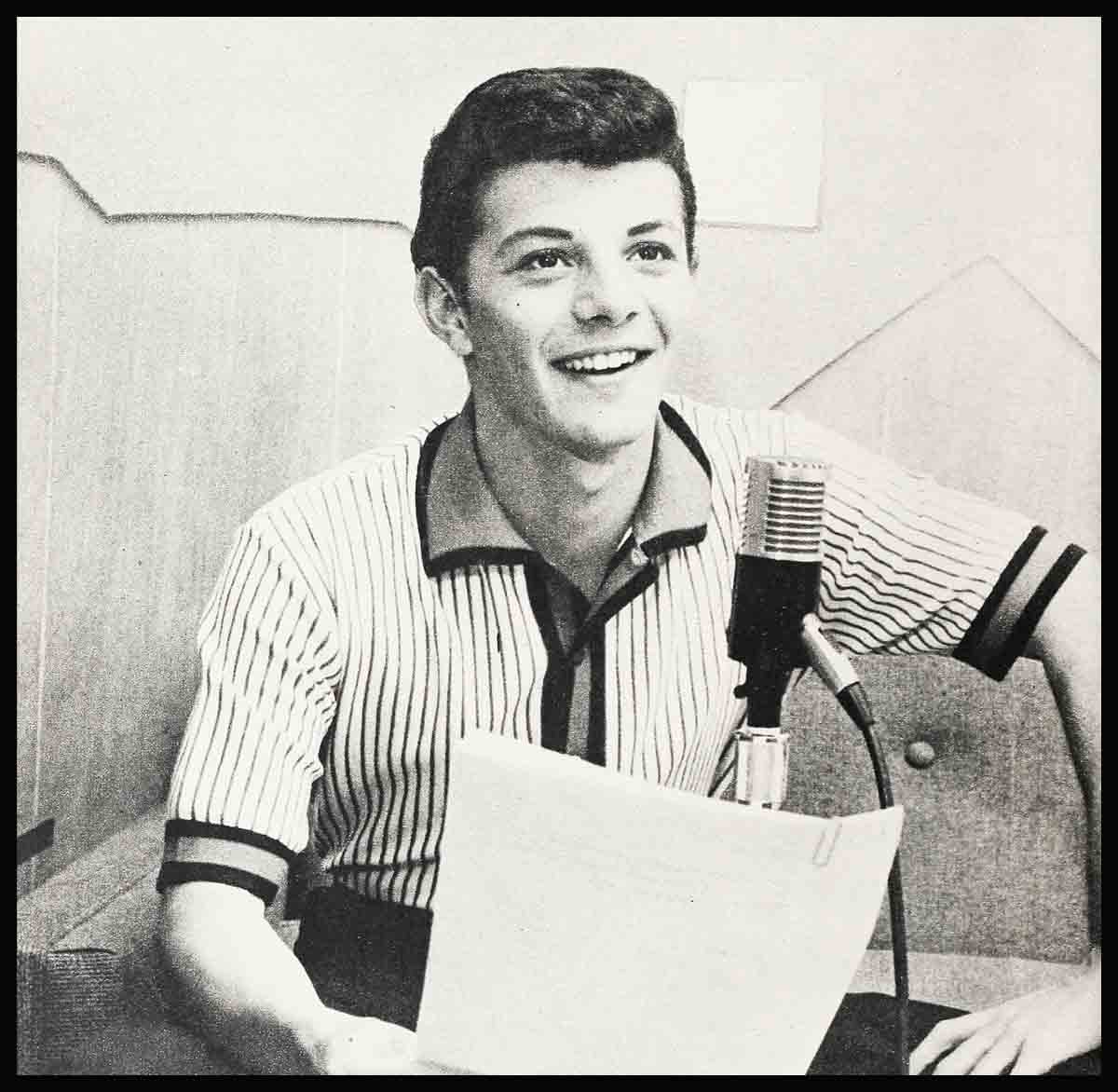
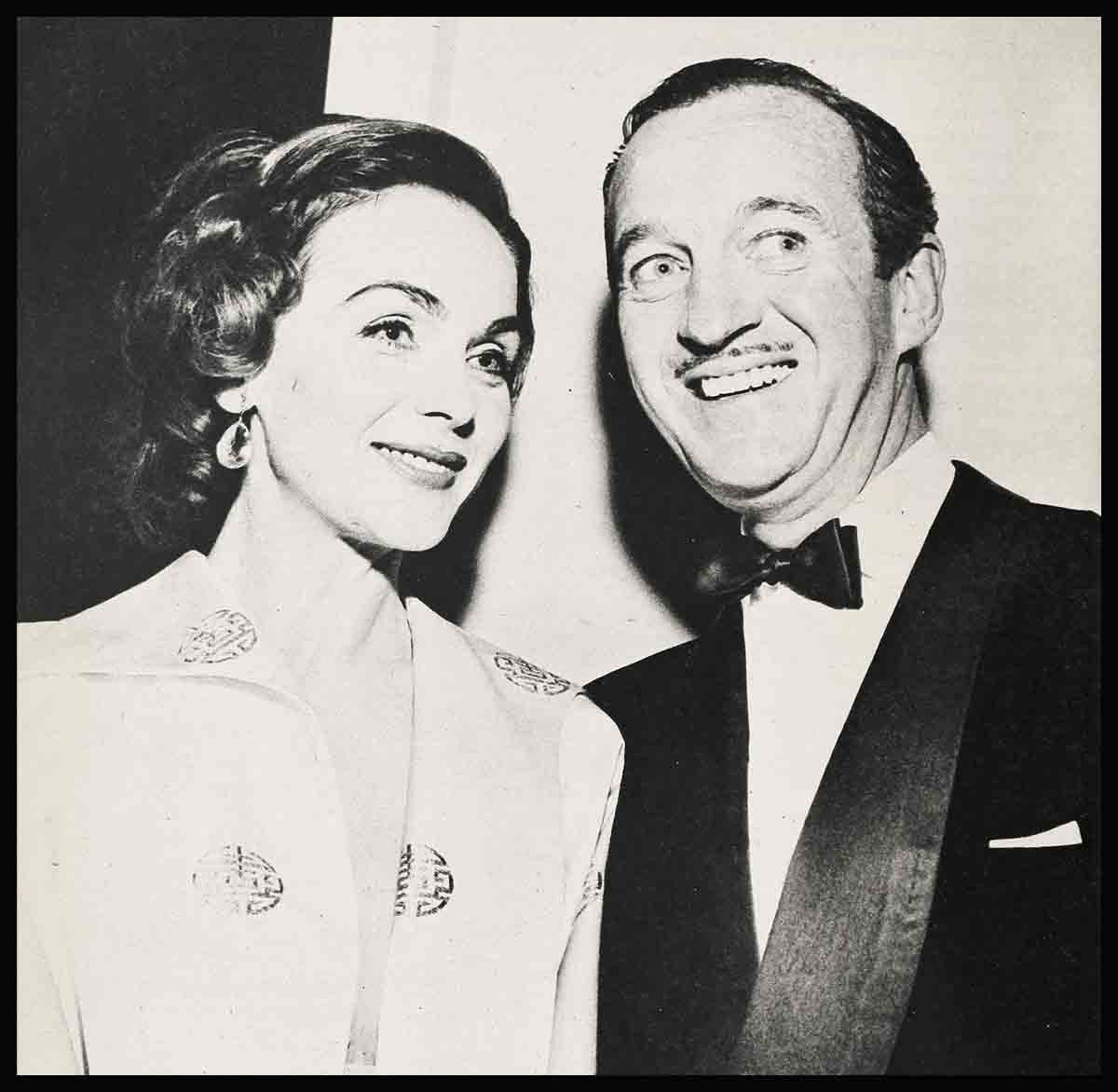
No Comments